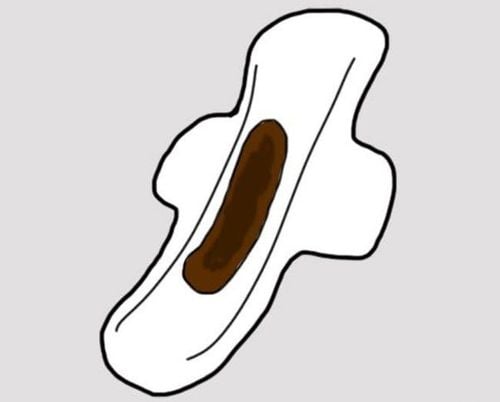This is an automatically translated article.
Metastatic (stage IV) breast cancer is breast cancer that has spread to another part of the body, most commonly the liver, brain, bones, or lungs. Cancer cells can break away from the original tumor in the breast and travel to other parts of the body through the blood vessels or lymphatic system.The article is professionally consulted by Internal Medicine Oncologist - Internal Oncology Department - Vinmec Times City International Hospital.
1. Symptoms and diagnosis of metastatic breast cancer
Breast cancer can come back in another part of the body months or years after initial diagnosis and treatment. Nearly 30% of women diagnosed with early-stage breast cancer will develop metastatic disease.Some people have metastatic breast cancer when they are first diagnosed with breast cancer. This means that the cancer in the breast is not detected at a local stage.
A metastatic tumor in another part of the body that originates from breast cancer cells. For example, if breast cancer has spread to the bone, it means that the metastatic tumor in the bone is made up of breast cancer cells, not bone cells.
Being diagnosed with metastatic breast cancer can feel overwhelming. You may feel anger, fear, stress, resentment, and depression. Some people may doubt the treatments they have been given or may be angry with their doctor or themselves for not being able to beat the disease. You should be in good spirits to be able to deal with a diagnosis of metastatic breast cancer in a realistic way. There's a lot of work to be done to bring out what's best for you and your situation.
Remember that metastatic breast cancer is NOT hopeless. Many people go on to live long, productive lives with breast cancer in this stage. There are many treatment options for metastatic breast cancer, and new drugs are being tested every day. More and more people are living life to the fullest while being treated for metastatic breast cancer.
While metastatic breast cancer may not go away completely, treatment can control it for a number of years. If one treatment doesn't continue, there are alternative treatments you can try. Cancer at different times can sometimes become active and then go into remission. Various treatments can be used on their own (monotherapy), in combination or in sequence - commonly used. Taking a break from treatment once the disease is under control and you feel better can make a big difference in your quality of life.
Symptoms of metastatic breast cancer can vary greatly depending on where the cancer has spread. This section covers symptoms of breast cancer that has spread to the bones, lungs, brain, and liver and the tests used to diagnose metastatic breast cancer :
Bone metastases :
Symptoms : the most common of these cancers Breast cancer that has spread to the bones is a sudden, noticeable new pain. Breast cancer can spread to any bone, but most commonly spreads to the ribs, spine, pelvis, or long bones in the arms and legs. The person will feel sudden pain and can't move, which can be a sign of a broken bone, pain in the back or neck; numbness or weakness in one area of the body or difficulty urinating or defecating. It could be due to a spinal cord compression, in which a broken vertebra presses on nerves in the spinal cord causing loss of control over various bodily functions. You may also experience fatigue, weakness, nausea, loss of appetite and/or dehydration, possibly due to very high calcium levels in the blood due to bone fractures.
Diagnosis: To diagnose bone metastases, your doctor will usually order one or more imaging tests, including: bone scan, X-ray, CT scan, MRI. Your doctor may also order blood tests to check for high levels of calcium or alkaline phosphatase (ALP), another substance that can be elevated by bone metastases. In some cases, a biopsy is needed to confirm the diagnosis. With the help of a CT scan, the doctor can insert a fine needle into the suspected area and take a sample of tissue to be examined in the laboratory.
If metastatic breast cancer is detected , it is also necessary to check the hormone and Her2 receptor information as for primary breast cancer
Lung metastasis :
Symptoms : When breast cancer metastasizes to the lung, It usually causes no symptoms. If lung metastases are causing symptoms, they may include pain or difficulty breathing, wheezing, a persistent cough, and coughing up blood and mucus. It can be difficult to tell the difference between symptoms of lung metastases and those of the common cold or upper respiratory illness - especially if it's cold and flu season, or you have a history of breathing problems. steam. Many doctors recommend that any unusual symptoms that persist for more than a week or two should be checked. Diagnosis: If your doctor suspects lung metastasis, he or she may order imaging tests such as a chest CT scan or a PET/CT emission tomography (positron) scan.
Trắc nghiệm: Những lầm tưởng và sự thật về ung thư vú
Ung thư vú có tỷ lệ tử vong cao nhất ở nữ giới khiến họ rất lo sợ bản thân mắc phải căn bệnh này. Tuy nhiên, không ít chị em có những hiểu biết thái quá về ung thư vú. Thử sức cùng bài trắc nghiệm sau sẽ giúp bạn loại bỏ được những nghi ngờ không đúng về căn bệnh này.
Bài dịch từ: webmd.com
Examining a sample of your sputum under a microscope Bronchoscopy: Insert an endoscope into the bronchi to examine and possibly sample any suspicious areas. Transthoracic needle biopsy: With CT guidance, the doctor inserts the needle through the chest wall and into the lung to remove a small tissue sample. Surgery: The doctor performs surgery to remove the suspicious area for examination. Brain Cancer Metastasis : Symptoms : Symptoms of breast cancer that has spread to the brain can include headaches, changes in speech or vision, memory problems, and others. Some symptoms of brain metastases, including:
Headache Changes in senses controlled by the brain such as slurred speech, blurred vision, loss of balance, dizziness or anything else that seems unusual Memory loss Mood or personality changes Seizures Brain stroke, in which blood supply to the brain is cut off; Symptoms may include sudden weakness or numbness on one side of the body, headache, difficulty speaking, vision changes, dizziness, and/or loss of balance Diagnosis: If your doctor suspects brain metastases, An MRI (magnetic resonance imaging) scan of the brain should be performed, usually with an injection of contrast material to make the picture clearer. Usually, an MRI can determine whether an abnormal finding in the brain is cancerous. breast metastasis or not. In difficult cases, a biopsy is performed to confirm the diagnosis. The sample is biopsied by having the surgeon drill a small hole through the skull and use a narrow, hollow needle to sample brain damage. The image guides can help the surgeon direct the needle into the correct area. The sample is sent to a histopathologist for testing. Liver metastases: Symptoms: When breast cancer spreads to the liver, it usually causes no symptoms. If liver metastases are causing symptoms, they may include pain or discomfort in the right upper quadrant, fatigue and weakness, weight loss or poor appetite, and fever. Some of the symptoms include:
Pain or discomfort in the right lower quadrant Fatigue and weakness Weight loss/poor appetite Fever Bloating Swelling in the legs Yellowing of the skin or eyes Diagnosis: In addition to liver function tests, doctors use using imaging tests to diagnose liver metastases. These may include MRI (magnetic resonance imaging), CT scan (computed tomography), ultrasound, and/or PET (positron emission tomography). Your doctor may also recommend taking a sample of the area. suspicious areas for examination under a microscope (biopsy). A radiographer is required to obtain accurate and minimally invasive images. Under the guidance of the image the doctor can insert a fine needle through the abdominal wall and into the liver to obtain a tissue sample. Your doctor may also recommend a method called Endoscopy Biopsy to take a sample. The samples can then be examined to confirm the diagnosis of metastatic breast cancer. Those samples can identify more information about the hormone receptor and the Her2 receptor.

2. Treatment of metastatic breast cancer
Once diagnosed with metastatic breast cancer, you should seek out all the information and make a decision about treatment. Learn about the health professionals who may be involved in care and treatment. Some treatments for metastatic cancer include:Surgery: Doctors sometimes recommend surgery for metastatic breast cancer, for example, to prevent fractures or embolize metastatic tumors. in the liver. Chemotherapy: Chemotherapy is used in the treatment of metastatic breast cancer to stop the growth or kill as much of the cancer cells as possible. Radiation therapy: Your doctor may recommend radiation therapy if you have symptoms for reasons such as pain relief and cancer control in a particular area. Hormone therapy: Hormone therapy drugs are used to help shrink or slow the growth of hormone receptor-positive metastatic breast cancer. Targeted Therapies: Targeted therapies target specific features of cancer cells, such as proteins that allow cancer cells to grow quickly or abnormally. Vinmec's breast cancer screening and early detection package helps to detect breast cancer early even when there are no symptoms.
Clinical examination:
Clinical examination by highly qualified specialists with good clinical experience. Screening methods:
Performed by 2 modern and high-precision imaging methods: mammography (mammography) and breast ultrasound:
Mammography is a basic method play an important role in the early detection of breast cancer. Mammography helps to detect microcalcification lesions, abnormally increased opacities, very valuable for the group of elderly people with fatty breast tissue. Breast ultrasound: is an adjunct to X-ray. Ultrasound is used to further evaluate the mass and can differentiate a solid mass from a cystic lesion. Ultrasound is also used to guide biopsies and other interventions. Counseling after results:
Customers will be consulted by their doctors specifically about the results and give useful advice on monitoring or other necessary indications Time to screen for breast cancer:
The best time to perform screening for customers who are still menstruating after 5-7 days of menstruation.
Please dial HOTLINE for more information or register for an appointment HERE. Download MyVinmec app to make appointments faster and to manage your bookings easily.
Article referenced source: Breastcancer.org













